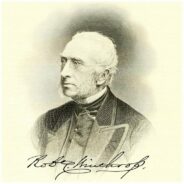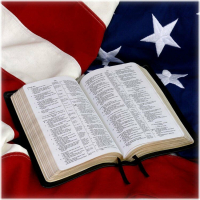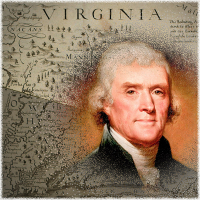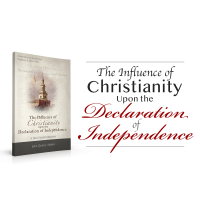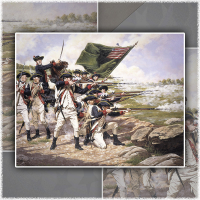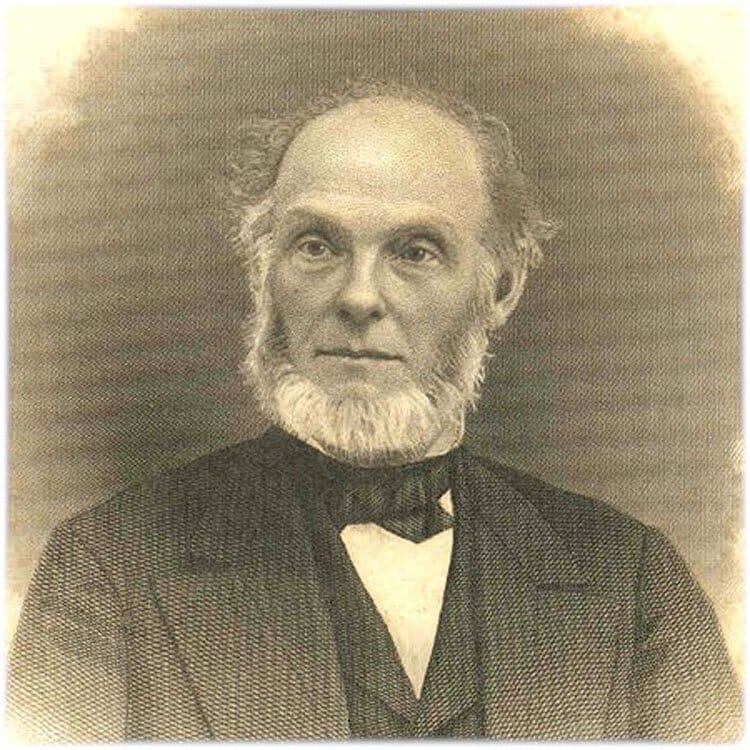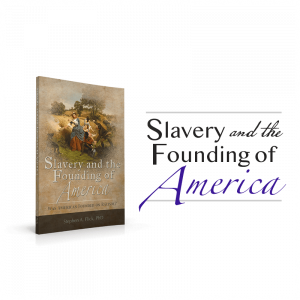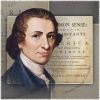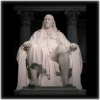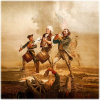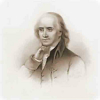House Speaker Robert Winthrop Defends the Bible
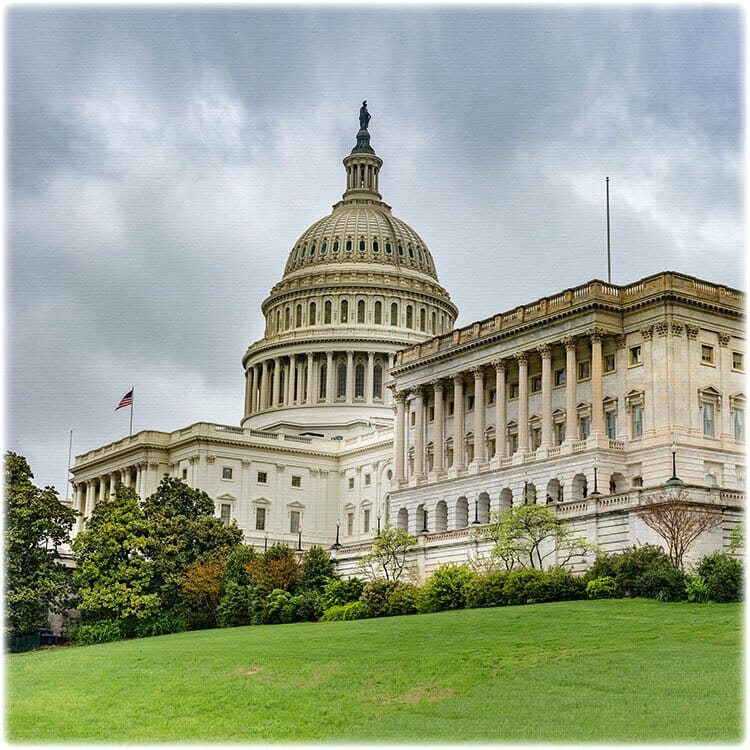
Robert Charles Winthrop was an American lawyer, politician, and philanthropist who at one point in his political career rose to the office of Speaker of the United States House of Representatives. Like most who lived during the Founding Era of the United States, Winthrop was concerned about the moral character of America's development. As was characteristic of many Founding Fathers, Winthrop involved himself in the advancement of Christianity in America—particularly through his political influence, oratory, literary endeavors, and the distribution of the Bible.
One of the many speeches he was called upon to deliver was presented to the Massachusetts Bible Society in Boston, on May 28, 1849, during which time he held the office of Speaker of the House of Representatives. This speech was typical of the depth of feeling that accompanied the Christian commitment of America's Founding Fathers, which God rewarded with his divine favor.
Please click this box to navigate to quotable text below.The Bible
An Address Delivered at the Annual Meeting of
the Massachusetts Bible Society in Boston,
May 28, 1849
In rising to move the adoption of the Report which has just been read, I feel deeply, Mr. President, how apt I shall be to disappoint any part of the expectations of this meeting, which may, by any chance, have been directed towards myself. I have not come here this afternoon in the hope of saying any thing which might not be better said by others more accustomed to deal with occasions of this sort; or any thing, indeed, which has not been, a hundred times already, better said by those who have heretofore taken part in these Anniversary celebrations.
But I was unwilling to refuse any service which your committee of arrangements might even imagine me capable of rendering to the cause in which you are assembled. I could not find it in my conscience, or in my heart, to decline bearing my humble testimony, whenever and wherever it might be called for, to the transcendent interest and importance of the object for which this Association has now lived and labored for the considerable period of forty years.
That object is the publication and general distribution of the Holy Scriptures; and no man. I am sure, who has had the privilege of listening to the Report of my Reverend friend, (Dr. Parkman,) and who has a soul capable of appreciating the grandeur of those aggregate results which he has so well set forth, can fail to pronounce it one of the greatest, most important, most comprehensive and catholic objects, to which human means and human efforts have ever been devoted.
The week on which we have just entered, has been signalized, I had almost said hallowed, among us, for many years past, by the meetings of many noble associations; and a record of philanthropy and charity has been annually presented to us in their reports and addresses, which must have filled every benevolent bosom with joy. But it has been a most appropriate and significant arrangement, that this Society should take the lead in these Anniversary festivals. Undoubtedly, Sir, the first of all charities, the noblest of all philanthropies, is that which brings the Bible home to every preside, which places its Divine truths within the range of every eye, and its blessed promises and consolations within the reach of every heart.
All other charities should follow, and, indeed, they naturally do follow, in the train of this. Let the great work of this Association be thoroughly prosecuted and successfully accomplished, and the soil will be prepared, and the seed sown, for a golden and glorious harvest.
Diffuse the knowledge of the Bible, and the hungry will be fed, and the naked clothed. Diffuse the knowledge of the Bible, and the stranger will be sheltered, the prisoner visited, and the sick ministered unto. Diffuse the knowledge of the Bible, and Temperance will rest upon a surer basis than any mere private pledge or public statute. Diffuse the knowledge of the Bible, and the peace of the world will be secured by more substantial safeguards than either the mutual fear, or the reciprocal interests, of princes or of people. Diffuse the knowledge of the Bible, and the day will be hastened, as it can be hastened in no other way, when every yoke shall be loosened, and every bond broken, and when there shall be no more leading into captivity.
It is the influence of the Bible, in a word. by which the very fountains of philanthropy must be unsealed, and all the great currents of human charity set in motion. It is here alone that we can find the principles, the precepts, the examples, the motives, the rewards, by which men can be effectually moved to supply the wants and relieve the sufferings of their fellow-men, and to recognize the whole human race as members of a common family, and children of a common Parent.
Is it not the Bible, Sir, which teaches us that "to visit the fatherless and widows in their affliction," is as vital a part of pure and undefiled religion, as "to keep ourselves unspotted from the world‒" Is it not the Bible which instructs us, that while "to love God with all our heart is the first and great commandment," "to love our neighbor as ourself is the second and like unto it‒" Is it not the Bible which charges "those who are rich in this world, that they be ready to give and glad to distribute, laying up for themselves a good foundation against the time to come, that they may attain eternal life‒"
Is it not plain, then, Mr. President, that the original moving spring, and the still sustaining power, of that whole system of moral and religious machinery, whose grand results are so proudly exhibited to us during this Anniversary week, must be found in the promulgation and diffusion of the Holy Scriptures‒ May we not fairly say, without arrogance on our own part or disparagement towards others, that all other benevolent associations are but distributors and service-pipes (if I may so speak) to that great Reservoir of living waters, over which this Association has assumed the special guardianship, and which it is its chosen and precious province to keep fresh, and full, and free to all the world‒
Even this, however, I am aware, Sir, is but a single and a somewhat subordinate aspect of the great work in which you are engaged. Indeed, as we hold up this subject in the sunlight before our eyes, we find a thousand other views of its interest and importance multiplying and brightening around us, as in a prism.
Regarded only as a mere human and utterly uninspired composition, (if, indeed, it be possible for any one so to regard it.,) who can over-estimate, who can adequately appreciate, the value of the Bible as a book for general circulation, reading, and study‒ I remember to have seen it somewhere mentioned, that in an old English Statute of about the year 1516,—I doubt not that you, Mr. President, could tell us the precise date of its passage,-the sacred volume, instead of being denominated Biblion, the book, was called Bibliotheca,—the library. And what a library it must have been in that early day of English literature! Nay, what a library it still is to us all now! Within what other covers have ever been comprised such diversified stores of entertainment and instruction, such inexhaustible mines of knowledge and wisdom!
The oldest of all books, as in part it certainly is; the most common of all books, as the efforts of these associations have now undoubtedly made it;—how truly may we say of it, that "age cannot wither, nor custom stale its infinite variety!" The world, which seems to outgrow successively all other books, finds still in this an ever fresh adaptation to every change in its condition and every period in its history. Now, as a thousand years ago, it has lessons alike for individuals and for nations; for rulers and for people; for monarchies and for republics; for times of stability and for times of overthrow; for the rich and the poor; for the simplest and the wisest.
Whatever is most exquisite in style, whatever is most charming in narrative, whatever is most faithful in description, whatever is most touching in pathos, whatever is most sublime in imagery, whatever is most marvelous in incident, whatever is most momentous in import, find here alike and always their unapproached and unapproachable original.
It was but a day or two since that I was reading that the great German poet, Goethe, had said of the little book of Ruth, that there was nothing so lovely in the whole range of epic or idyllic poetry. It was but yesterday that I was reading the tribute of the no less distinguished Humboldt to the matchless fidelity and grandeur of the Hebrew lyrics, in the course of which he speaks of a single Psalm (the 104th) as presenting a picture of the entire Cosmos. I have heard that our own Fisher Ames, who has left behind him a reputation for eloquence hardly inferior to that of any American Orator either of his own day or of ours, was accustomed to say that he owed more of the facility and felicity of his diction to the Bible, and particularly to the book of Deuteronomy, than to any other source, ancient or modern.
Indeed, Sir, the art, the literature, and the eloquence of all countries and of all times, have united in paying a common homage to the Bible. It has inspired the noblest strains of music and the loftiest triumphs of the painter. Where would be the harmonies of the great composers, where would be the galleries of the old masters, without the subjects with which the Bible has supplied them‒
Other books, I know, both in ancient and modern times, have received striking tributes to their genius, their ability, their novelty, their fascination. It will never be forgotten by the admirers of Homer, that Alexander the Great carried the Iliad always about with him in a golden casket. It will never be forgotten by the eulogists of Grotius, that Gustavus Adolphus, in the war which he waged in Germany for the liberty of Protestant Europe, slept always with the treatise De Jure Belli ac Pacis on his pillow. But how many caskets and how many pillows have borne testimony to the Bible! Yes, Sir, of heroes and conquerors, not less mighty than the Macedonian or the Swede; and not of those only who have been called to wrestle against flesh and blood, but of those who have contended "against principalities and powers, against the rulers of the darkness of this world, against spiritual wickedness in high places," and who have found in this holy volume, as in the very armory of Heaven, "the sword of the Spirit, the breastplate of righteousness, the helmet of salvation, and the shield of faith, by which they have been able to quench all the fiery darts of the wicked."
I perceive, Mr. President, how impossible it is to separate the influence of the Bible as a mere book, from that which it owes to its divine character and origin. And they ought not to be separated. Unquestionably, it is as containing the word of God, the revelation of immortality, the gospel of salvation, that the Bible presents its preeminent title to the affection and reverence of the world. And it is in this view above all others, that its universal distribution becomes identified with the highest temporal and eternal interests of the human race.
I say, with the highest temporal, as well as eternal interests of the human race; and I desire to dwell for a single moment longer, on the inseparable connection of the work in which this and other kindred associations are engaged, with the advancement of civilization, with the elevation of mankind, and with the establishment and maintenance of Free Institutions. I desire, especially, to express the opinion, which I have been led of late to cherish daily and deeply,—that every thing in the character of our own institutions, and every thing in the immediate condition of our own country, calls for the most diligent employment of all the moral and religious agencies within our reach, and particularly for increased activity in the distribution of the Bible.
Mr. President, there is a striking coincidence of dates in the history of our country, and in the history of the Bible. You remember that it was about the year 1607, that King James the First, of blessed memory for this if for nothing else, gave it in charge to fifty or sixty of the most learned ministers of his realm, to prepare that version of the Holy Scriptures, which is now; everywhere received and recognized among Protestant Christians as the Bible. This version was finally published in 1611, and it is from this event that the general diffusion of the Bible may fairly be said to date.
The Bible had, indeed, been more than once previously translated and previously printed. During the two preceding centuries, there had been Wickliff's version, and Tyndale's version, and Coverdale's version, and Cranmer's version, and the Geneva Bible, and the Douay Bible, and I know not what others; and they had all been more or less extensively circulated and read, in manuscript or in print, in churches and in families, sometimes under the sanction, and sometimes in defiance of the civil and spiritual authorities.
I doubt not that many of my hearers will remember the vivid picture which Dr. Franklin has given us, in his autobiography, of the manner in which the Bible was read during a portion of this period. Some of his progenitors, it seems, in the days of bloody Mary, were the fortunate possessors of an English Bible, and to conceal it the more securely, they were driven, he tells us "to the project of fastening it open with pack threads across the leaves, on the inside of the lid of the close-stool."
"When my great-grandfather (he proceeds) wished to read the Bible to his family, he reversed the lid of the stool upon his knees, and passed the leaves from one side to the other, which were held down on each by the pack thread. One of the children was stationed at the door to give notice if he saw the proctor (an officer of the spiritual court) make his appearance; in that case, the lid was restored to its place, with the Bible concealed under it as before."
It is plain, that however precious the Bible must have been to those who possessed it in those days, and however strong the influence which it may have exerted over individual minds, it had little chance to manifest its power over the masses, under circumstances like these. Indeed, the whole number of printed Bibles in existence in Great Britain, up to the commencement of the seventeenth century, is estimated at only about one hundred and seventeen thousand;—a little more than one fifth the number distributed by the American Bible Society, and only a little more than one tenth the number distributed by the British and Foreign Bible Society, during the single year last past.
It is, thus, only from the publication of the authorized and standard version of King James, that the general diffusion of the Holy Scriptures can be said to have commenced. It was then that the printed word of God "first began to have free course and to be glorified." And that, you remember, Mr. President, was the very date of the earliest settlement of these North American Colonies. It was just then, that the Cavaliers were found planting themselves at Jamestown in Virginia; and it was just then, that the Pilgrims, with the Bible in their hands, were seen flying over to Leyden, on their way to our own Plymouth Rock.
And now, Sir, it is not more true, in my judgment, that the first settlement of our country was precisely coincident in point of time, with the preparation and publication of this standard version of the Bible, than it is that our free institutions have owed their successful rise and progress thus far, and are destined to owe their continued security and improvement in time to come, to the influences which that preparation and publication could alone have produced.
The voice of experience and the voice of our own reason speak but one language on this point. Both unite in teaching us, that men may as well build their houses upon the sand and expect to see them stand, when the rains fall, and the winds blow, and the floods come, as to found free institutions upon any other basis than that morality and virtue, of which the Word of God is the only authoritative rule, and the only adequate sanction.
All societies of men must be governed in some way or other. The less they may have of stringent State Government, the more they must have of individual self-government. The less they rely on public law or physical force, the more they must rely on private moral restraint. Men, in a word, must necessarily be controlled, either by a power within them, or by a power without them; either by the word of God, or by the strong-arm of man; either by the Bible, or by the bayonet. It may do for other countries and other governments to talk about the State supporting religion. Here, under our own free institutions, it is Religion which must support the State.
And never more loudly than at this moment have these institutions of ours called for such support. The immense increase of our territorial possessions, with the wild and reckless spirit of adventure which they have brought with them; the recent discovery of the gold mines of California, with the mania for sudden acquisition, for "making haste to be rich," which it has everywhere excited; the vast annual accession to our shores of nearly half a million of foreigners, so many of whom are without any other notion of liberty, at the outset, than as the absence of all restraint upon their appetites and passions;—who does not perceive in all these circumstances that our country is threatened, more seriously than it ever has been before, with that moral deterioration, which has been the unfailing precursor of political downfall‒ And who is so bold a believer in any system of human checks and balances as to imagine, that dangers like these can be effectively counteracted or averted in any other way, than by bringing the mighty moral and religious influences of the Bible to bear in our defense.
As patriots, then, no less than as Christians, Mr. President, I feel that we are called upon to unite in the good work of this Association. And let us rejoice that it is a work in which we can all join hands without hesitation or misgiving. There is no room here I thank heaven, for differences of parties or of sects. There is no room here for controversies about systems or details. Your machinery is of all others the most simple. Your results are of all others the most certain. In a period of little more than forty years, by the agency of associations like this, more than thirty-five millions of Bibles and Testaments have been distributed throughout the world, and more than six millions of them within the limits of our own land. Let us persevere in this noble enterprise. And let each one of us resolve to secure for himself, against the hour which sooner or later must come to us all, that consolation which I doubt not is at this moment cheering the decline of your late venerable President, (Dr. Pierce) — the consolation of reflecting, that it has not been for the want of any proportionate contributions or proportionate efforts on our part, if every human being has not had a Bible to live by, and a Bible to die by.
I move the adoption of the Report.
America deserves to know its true heritage.
Please contribute today!
Related Articles

